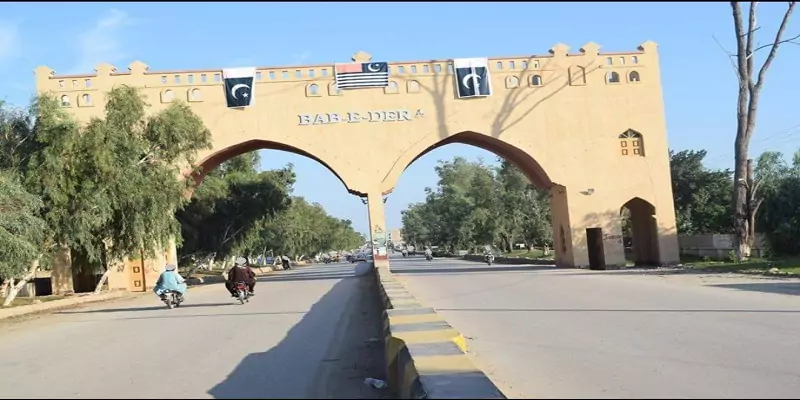Dera Ismail Khan
Dera Ismail Khan (often abbreviated as D.I. Khan) is a city located in the Khyber Pakhtunkhwa (KPK) province of Pakistan. Situated along the western bank of the Indus River, this historic city has played a significant role in the region's cultural, historical, and economic landscape. In this comprehensive description, we will explore Dera Ismail Khan's geography, history, culture, economy, education, landmarks, and its broader importance in the context of KPK.
Dera Ismail Khan is strategically positioned in the southern part of KPK, near the border with Punjab. It lies on the western bank of the Indus River, with a landscape characterized by flat plains and fertile agricultural land. The city serves as a gateway between Khyber Pakhtunkhwa and the southern regions of Pakistan. The proximity to the river has historically influenced the city's development and economic activities.
The history of Dera Ismail Khan dates back centuries, with the region witnessing the rise and fall of various civilizations. The city has connections to the ancient Gandhara civilization, and archaeological discoveries in the surrounding areas indicate human habitation dating back to ancient times. Over the years, Dera Ismail Khan has been influenced by different empires, including the Mauryan and Gupta periods, as well as the Mughal era.
Dera Ismail Khan is a melting pot of diverse cultures, with a predominant Pashtun influence. The city's cultural fabric is woven with Pashto language, traditional music, and Pashtun hospitality. The bazaars of D.I. Khan showcase a vibrant display of local crafts, textiles, and traditional cuisine. The residents take pride in their cultural heritage, and the city is known for its lively festivals and celebrations.
The economy of Dera Ismail Khan is primarily agrarian, with fertile lands along the Indus River supporting the cultivation of crops like wheat, sugarcane, and cotton. Agriculture forms the backbone of the local economy, providing livelihoods for a significant portion of the population. Additionally, trade and commerce play a crucial role, given the city's strategic location as a gateway between different regions.
Dera Ismail Khan has made strides in the field of education, with schools, colleges, and universities catering to the educational needs of the local population. Gomal University, established in the city, is a notable institution contributing to higher education in the region. Efforts are ongoing to enhance the overall literacy rate and educational infrastructure.
Landmarks and Attractions:
1. Gomal University:
Founded in 1974, Gomal University has become a prominent educational institution, contributing significantly to the academic landscape of D.I. Khan.
2. Tomb of Sheikh Ismail:
A historical site, the tomb of Sheikh Ismail holds religious and cultural significance. It is a place of reverence and pilgrimage for locals.
3. Zafar Park:
Zafar Park is a recreational area where residents and visitors can enjoy green spaces, walking paths, and a serene environment away from the hustle and bustle of the city.
4. Indus River Bridge:
The Indus River Bridge is a vital infrastructure connecting Dera Ismail Khan to the eastern bank of the Indus River. It is not only a functional bridge but also offers panoramic views of the river.
Dera Ismail Khan, while not as widely recognized as some other cities in KPK, offers a unique experience for those interested in exploring the cultural heritage and historical sites of the region. The city's connection to the Indus River and its role as a gateway to different parts of Pakistan make it an intriguing destination for travelers seeking a blend of history and natural beauty.
Dera Ismail Khan experiences a semi-arid climate with hot summers and mild winters. The summer temperatures can be high, making it conducive for the cultivation of crops, while winters are relatively pleasant. The climate is influenced by the city's geographical location in the southern part of Khyber Pakhtunkhwa.Dera Ismail Khan's infrastructure has seen improvements over the years, with a focus on roads, connectivity, and basic amenities. The Indus River Bridge is a vital part of the city's infrastructure, facilitating transportation and trade with neighboring regions.
As Dera Ismail Khan looks to the future, there are aspirations for continued development, both economically and socially. Efforts are being made to enhance educational opportunities, improve healthcare facilities, and promote sustainable agriculture. The city's strategic location continues to be an asset for trade and commerce, contributing to its importance in the regional context.
Dera Ismail Khan, with its rich history, cultural diversity, and agricultural significance, stands as a key player in the tapestry of Khyber Pakhtunkhwa. As the city continues to evolve, it maintains its cultural identity while embracing progress and development. D.I. Khan's significance goes beyond its geographical boundaries, making it an integral part of the broader narrative of KPK, Pakistan.

